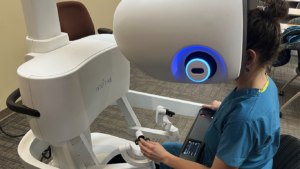What happens when employees become company owners with a genuine stake in business outcomes? Shared ownership offers a model where empowerment is not symbolic but rooted in real equity and involvement. Partnering with shared equity organizations ensures workers gain more than titles—they gain financial growth and decision-making power. Strong employee management practices are essential for nurturing accountability, motivation, and long-term organizational success.
Trusted employee ownership networks like Teamshares support transitions that turn workers into confident, committed stakeholders. A collaborative approach encourages transparency, alignment, and stronger outcomes driven by unified employee engagement. Here, we highlight how shared ownership strengthens companies through responsibility, retention, financial insight, and innovation.
1. Fostering a Sense of Ownership and Responsibility
Shared equity models give workers a deeper stake in company success and daily decision-making processes. Employee-led business groups reinforce accountability by aligning contributions with the enterprise’s overall performance. As individuals feel valued through ownership, they become more driven to protect and improve business outcomes. This collective motivation creates a stronger foundation for resilience, adaptability, and long-term business sustainability.
2. Enhancing Financial Literacy and Transparency
Transparent ownership models require open access to financial data, encouraging stronger literacy in business fundamentals. Shared equity organizations introduce employees to budgeting, revenue patterns, and financial strategy through active participation in ownership roles. This exposure helps teams evaluate operations critically, contributing insights that influence strategic and cost-saving decisions. As understanding grows, workers support smarter, more unified fiscal growth and stability directions.
3. Aligning Employee and Company Goals
When individuals become owners, their financial outcomes are directly tied to company performance. Ownership transfer platforms facilitate this alignment by merging employee interests with organizational vision and profitability. This structure builds unity, reduces internal conflict, and strengthens collaborative efforts across diverse departments. The result is consistent progress fueled by aligned values and mutual investment in shared success.
4. Improving Employee Retention and Satisfaction
Ownership opportunities enhance retention by offering long-term rewards and signaling trust in employee contributions. Employee empowerment teams help structure these programs, promoting inclusion and equity across the organization. Workers feel more committed when they know their efforts directly influence outcomes and compensation. Retained talent means a stronger company culture, better performance, and preserved institutional knowledge that propels growth.
5. Encouraging Innovation and Initiative
Workers who hold stakes in a business tend to voice ideas that drive innovation and competitiveness. Ownership-aligned networks ensure contributions are valued by creating forums that support bottom-up input and new thinking. Individuals take initiative to explore improvements that benefit everyone, not just management or investors. This decentralized model cultivates creativity and drives organic evolution within workplace structures.
6. Strengthening Community and Economic Stability
Locally grounded companies with employee ownership often maintain deep economic ties to their regions. Cooperative ownership alliances contribute to community strength by keeping profits and influence within the employee base. This structure enhances loyalty, reinforces corporate citizenship, and stabilizes local economic ecosystems through inclusive decision-making. In return, businesses gain lasting trust and consistent market support from loyal communities.
Empowered workers make sharper decisions, show deeper loyalty, and contribute meaningfully to long-term business health. Partnering with shared equity organizations like Teamshares helps unlock hidden leadership potential across the workforce. This transformation builds cultures where motivation thrives, and every win is shared companywide. Ownership-driven teams foster agility, trust, and commitment that traditional models often fail to sustain.




